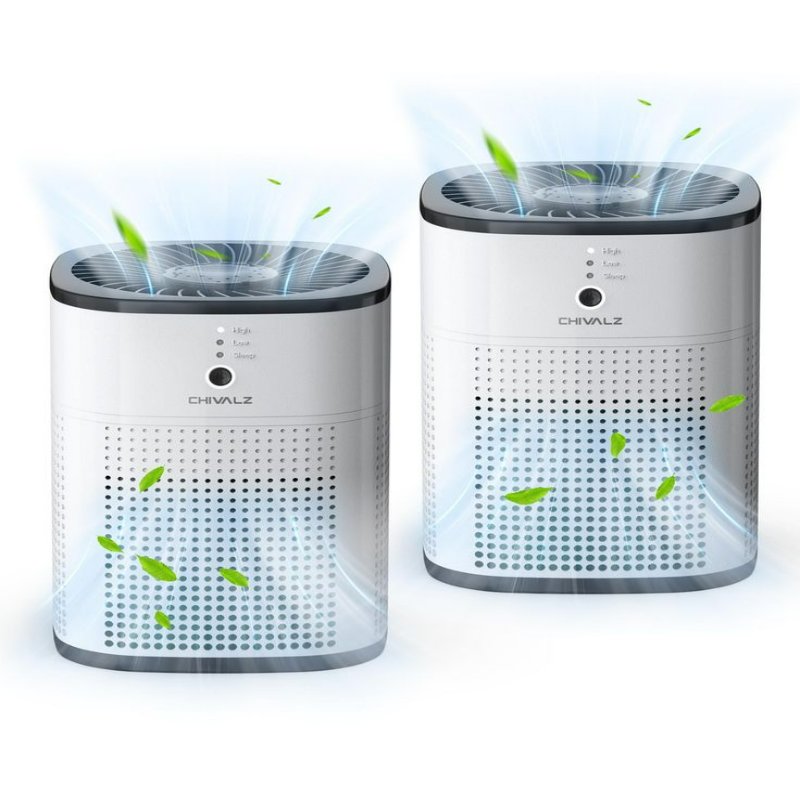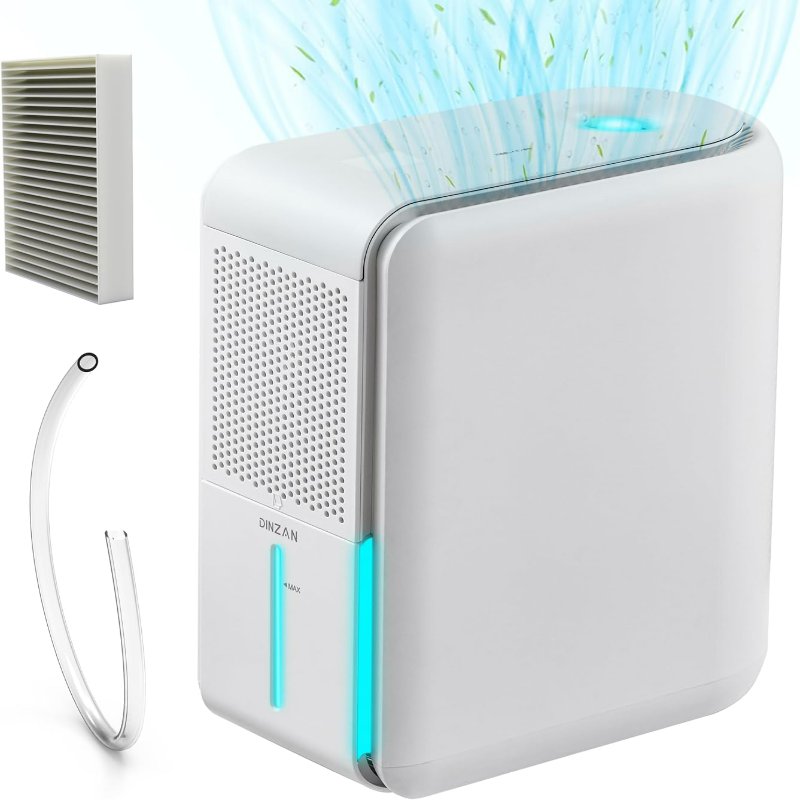In the realm of home health and comfort, two devices often vie for attention: the air purifier and the humidifier. Both promise to enhance indoor air quality but serve strikingly different purposes. Understanding their functions, benefits, and drawbacks will help you make an informed decision about which one — air purifier vs humidifier — is essential for your home. This comprehensive guide dives into the nuances of air purifiers and humidifiers, their respective roles in indoor environments, and the factors you should consider based on your individual needs.
Understanding Air Purifiers: The Essential Allergen Fighters
Air purifiers are specialized devices designed to filter and purify the air in your home. Their primary function is to remove airborne particles such as dust, pollen, pet dander, smoke, and even volatile organic compounds (VOCs). The effectiveness of air purifiers typically depends on the type of filter they use. HEPA filters, for example, can trap 99.97% of particles that are 0.3 microns or larger, making them a top choice for allergy sufferers.
Additionally, air purifiers often feature activated carbon filters that can absorb odors and chemical pollutants, thereby improving overall air quality. For those with specific health concerns such as asthma or allergies, an air purifier can significantly mitigate symptoms by delivering cleaner air. Some advanced models incorporate UV-C light technology, which targets bacteria and viruses, providing an added layer of protection. Using an air purifier can be particularly beneficial for homes in urban areas with high pollution levels, or for those that want to maintain a healthy indoor atmosphere, especially during allergy season.

The Case for Humidifiers: Balancing Moisture for Comfort
While air purifiers focus on removing impurities from the air, humidifiers aim to add moisture to combat dryness. A humidifier is particularly useful in regions with low humidity levels or during winter months when indoor heating can lead to excessively dry air. Dry air can cause a range of discomforts from skin irritation and dry eyes to respiratory issues and increased susceptibility to colds.
Humidifiers work by releasing water vapor or steam into the atmosphere, which helps maintain optimal humidity levels. The ideal indoor humidity range is between 30% and 50%. Within this range, you’re less likely to experience health issues related to dry air. Moreover, the right humidity levels can also benefit wooden furniture, plants, and even painted walls. It’s worth noting that there are different types of humidifiers—evaporative, ultrasonic, and steam vaporizers—each with their advantages and disadvantages, which can affect your decision about which unit to invest in.
Key Differences: Understanding Their Unique Roles
The distinctions between air purifiers and humidifiers extend beyond their basic functions. While air purifiers aim to cleanse the air of pollutants, humidifiers serve to restore moisture balance to a dry environment. This fundamental difference is crucial when determining which device is suitable for your home.
For instance, if you’re primarily concerned about allergic reactions, respiratory issues, or the presence of pet dander, an air purifier would be the sensible choice. On the other hand, if you live in a dry climate or struggle with indoor dryness during winter, a humidifier would be beneficial. It’s essential to assess the air quality in your home and identify your specific needs. For example, homes with pets or residents prone to allergies could benefit more from an air purifier’s ability to filter out allergens, while families with infants might consider a humidifier to improve overall comfort and health.
Health Benefits: How Each Device Promotes Wellbeing
Investing in either an air purifier or a humidifier can contribute significantly to the overall health of your home environment, though in different ways. Air purifiers effectively reduce airborne pollutants, which can significantly lower the risk of respiratory infections and allergic reactions. For those with asthma, having an air purifier can mean fewer triggers and a more comfortable living space. The psychological benefits are also noteworthy; knowing that you’re breathing cleaner air can reduce anxiety associated with health concerns.
On the flip side, humidifiers create a more hospitable living environment by alleviating symptoms associated with dry air. This is especially pertinent for people with dry skin, allergies, or asthma, as dry air can exacerbate these conditions. Furthermore, proper humidity levels can prevent the spread of viruses by hindering their capacity to travel in dry air. Babies and young children are particularly vulnerable to the effects of dry air, making a humidifier an invaluable asset for their health. Therefore, assessing your household’s specific health needs could sway your decision toward one device over the other—or perhaps even both.

Environmental Factors: Assessing Your Home’s Unique Needs
Understanding your living environment is pivotal when deciding between an air purifier and a humidifier. Factors such as climate, local air quality, and even your home’s construction can influence which device is essential for your household. For example, if you reside in an area known for high levels of pollen or pollutants, an air purifier may be imperative to filter those harmful particles. Conversely, if you live in a particularly dry climate or your home has a tendency to lack moisture, a humidifier would be beneficial.
Furthermore, consider your home’s layout and ventilation. Spaces with poor airflow may inherently accumulate dust and allergens, making an air purifier critical for maintaining air quality. If you have a newly constructed home with tight insulation, that may also trap pollutants; an air purifier can effectively combat this issue. On the other hand, if you have a traditional home that tends to be drafty, a humidifier can add necessary moisture and create an inviting atmosphere. Identifying these environmental factors will lead you to the right choice.
Budget Considerations: Evaluating the Costs
Before making a decision between an air purifier and a humidifier, it’s essential to assess your budget. Both options come with initial costs and ongoing operational expenses that can vary significantly. Air purifiers can range from affordable to high-end devices, depending on their filter technology and features. Some models require filter replacements every few months, which can add to the overall cost.
Humidifiers, while generally less expensive upfront, can also incur costs from regular maintenance, such as cleaning and replacing components over time. Additionally, the type of humidifier you choose can impact your budget. For instance, ultrasonic humidifiers tend to be quieter and more efficient, but they may require more specialized cleaning to prevent mineral buildup. Weighing both the initial purchase cost and ongoing maintenance expenses is crucial for making a financially sound decision that meets your air quality or humidity requirements.

The Combination Approach: When to Use Both Devices
In some situations, it might make sense to utilize both an air purifier and a humidifier simultaneously to enhance overall indoor air quality. Many homeowners are unaware that air purifiers and humidifiers can complement each other well, creating an ideal environment for health and comfort. While the air purifier cleanses the air by removing pollutants, dust, and allergens, the humidifier balances moisture levels, preventing dryness in the air that could exacerbate respiratory issues or skin irritations.
Utilizing both devices can be particularly effective in households where family members have allergies or asthma, as well as those living in dry climates. For example, during winter months when indoor air tends to be dry, a humidifier can maintain comfortable humidity levels, while an air purifier ensures that any particles or allergens suspended in the air are effectively removed. Ultimately, employing both devices strategically can lead to a significantly improved indoor air quality and enhanced living conditions for you and your family.
Conclusion: Making the Right Choice for Your Home
When weighing the pros and cons of an air purifier versus a humidifier, it becomes clear that each device serves essential yet distinct functions that cater to our various indoor air quality needs. Your choice should ultimately hinge on your specific health concerns, environmental factors, and budget considerations. Assess the air quality in your home, consider your local climate, and determine whether you or your family members are experiencing specific issues linked to air quality or humidity levels.
In some instances, investing in both an air purifier and a humidifier can provide an overarching solution to tackle allergies and moisture concerns simultaneously. By prioritizing indoor air quality and comfort, you’re not only making a choice for today but also investing in a healthier living environment for the future.